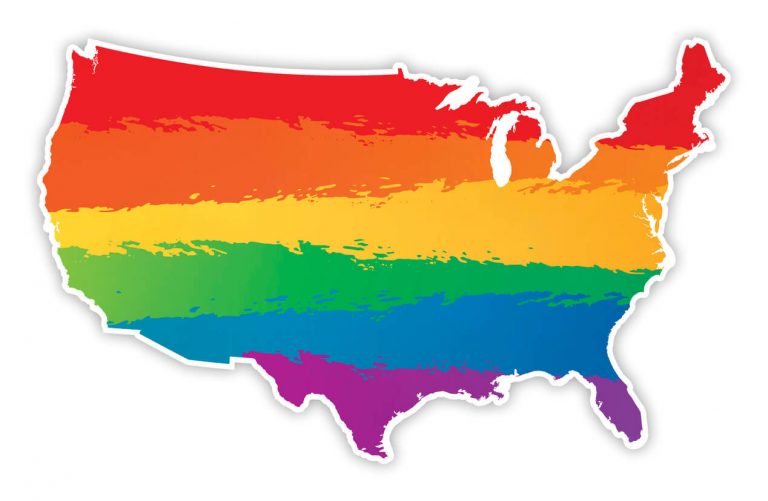
Prohibitions Against LGBT Discrimination in Federal Civilian Workforce
Zuckerman Law is committed to aggressively combatting LGBT discrimination in all workplaces, including in the federal workforce. Two of the firm’s attorneys held senior positions at the U.S. Office of Special Counsel, where they enforced 5 U.S.C. § 2302(b)(10), a prohibited personnel practice barring agencies from discriminating against employees based on conduct that does not adversely affect job performance. Call us for a free consultation at 202-262-8959.
Can my federal employment be terminated because I am LGBT?
No: Executive Order 11478, amended by former President Obama and left in place by President Trump, protects employees of the federal government or federal contractors from discrimination based on sexual orientation or gender identity.
Do any federal statutes protect me from LGBT-based employment discrimination?
In certain respects, yes.
Title VII of the Civil Rights Act of 1964 prohibits the federal government from discriminating against its employees based on their “race, color, religion, sex, or national origin.” (42 U.S.C. § 2000e-16(a).) The Equal Employment Opportunity Commission (EEOC) has interpreted “sex”-based discrimination to encompass discrimination based on sexual orientation, gender identity, or sex stereotypes.
In Macy v. Holder, the EEOC held that discrimination against a transgender employee because of that employee’s gender identity constitutes unlawful sex discrimination under Title VII. (EEOC Appeal No. 0120120821, 2012 WL 1435995 (Apr. 20, 2012).) Following Macy, the EEOC also held that:
- the Department of the Army (1) discriminated against a transgender employee because of her sex, in violation of Title VII, by restricting her access to a common female restroom facility; and (2) created a hostile work environment based on sex by denying her access to the common female restroom and allowing a supervisor to “intentionally and repeatedly to refer to her by male names and pronouns and make hostile remarks well after he was aware that [the employee’s] gender identity was female” (Lusardi v. McHugh, EEOC Appeal No. 0120133395, 2015 WL 1607756 (Mar. 27, 2015));
- the intentional misuse of a transgender employee’s name and pronoun may constitute sex-based discrimination, harassment, or both (Jameson v. Donahoe, EEOC Appeal No. 0120130992, 2013 WL 2368729 (May 21, 2013)); and
- a transgender employee stated a claim of Title VII sex discrimination where his employer continually failed to update its records with the employee’s correct gender identity and failed to address anti-transgender hostility directed at that employee by his coworkers. (Eric S. v. Shinseki, EEOC Appeal No. 0120133123, 2014 WL 1653484 (Apr. 16, 2014).)
Additionally, the Civil Service Reform Act of 1978 contains two provisions that have been interpreted to prohibit employment discrimination based on sexual orientation or gender identity:
- Similar to Title VII, CSRA prohibits employment discrimination based on “sex.” (5 U.S.C. § 2302(b)(1)(A).)
- CSRA also prohibits employment discrimination based on any “conduct which does not adversely affect the performance of the employee or applicant or the performance of others.” (5 U.S.C. § 2302(b)(10).)
What can I do if I believe I have been discriminated against in my federal employment for being LGBT?
Any federal employee who believes he or she has been discriminated against based on sexual orientation or gender identity may file a complaint under Title VII, CSRA, or both. These options are discussed in detail in a memo titled Addressing Sexual Orientation and Gender Identity Discrimination in Federal Civilian Employment: A Guide to Employment Rights, Protections, and Responsibilities (OPM, EEOC, OSC, MSPB, June 2015).
A complaint under Title VII should be brought to an EEO counselor at the employee’s agency within 45 days of the discriminatory incident. If the complaint cannot be resolved informally, the employee will have an opportunity to file a formal complaint with his or her agency. The employee can choose to receive either a final decision from his or her agency or a hearing before an EEOC administrative-law judge (ALJ). The employee can appeal the decision at this stage to the EEOC and then file a claim in federal court.
A complaint under the CSRA should be brought to the Office of Special Counsel (OSC). There is no statute of limitations for filing a prohibited-personnel-practice complaint. If OSC determines that there are reasonable grounds to believe that the agency has committed or will commit a prohibited personnel practice, then OSC may petition the MSPB for corrective and/or disciplinary action.
Employees should be familiar with their agencies’ dispute-resolution procedures. Many agencies have unique processes for informally resolving disputes.
Shameful Legacy of LGBT Discrimination Against Federal Employees
As LGBT rights in the workplace, it is critical to be vigilant and to fight for full equality. And it is worth remembering the shameful legacy of discrimination against LGBT federal employees. In particular, under the guise of “national security” the FBI searched for and purged gay employees. Many federal employees lost their jobs solely due to their sexual orientation and lacked any remedy.
Why Hire Zuckerman Law for Your Discrimination or Retaliation Case?

Having served as Special Litigation Counsel in the Civil Rights Division of the Department of Justice and as lead or co-counsel in numerous jury trials, Bachman is trial-tested and ready to fight for you to obtain the relief that you deserve. As editor of the Glass Ceiling Discrimination blog, Bachman writes frequently on topics related to promotion discrimination, harassment, and other employment discrimination issues.
U.S. News and Best Lawyers® have named Zuckerman Law a Tier 1 firm in Litigation – Labor and Employment in the Washington DC metropolitan area. Contact us today to find out how we can help you. To schedule a preliminary consultation, click here or call us at (202) 769-1681.









